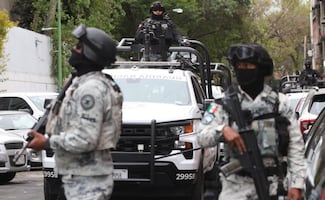Más Información

Violencia en Jalisco tras muerte de "El Mencho" deja 25 detenidos; saquean 69 tiendas Oxxo y dañan 18 sucursales del Banco del Bienestar

"El Mencho", una década bajo acecho en México; el líder del CJNG fue localizado en cinco ocasiones y logró huir

Sheinbaum llama a la calma tras bloqueos por muerte de "El Mencho"; destaca coordinación con los estados
The WTO ’s Appellate Body is the apex judicial institution to enforce global trade disagreements and disputes in a multilateral manner. It is the only international adjudicatory mechanism with an appellate authority in the world which has compulsory as well as binding jurisdiction over WTO members . I wonder if we will soon have to refer to this institution with a past tense.
Appellate Body
is an institution comprised of seven judges (referred to as members) yet the judges have been reduced to three in the last two years. After completing their four-year tenure, or a reappointment of another four years, four out of seven members have already left the body. These vacancies have not been filled, as new members can only be appointed by consensus of all WTO members .
This means that all WTO members have a veto in this decision, and the U.S. in the last two years has used this veto to block the appointment of new members. On December 11, 2019, two more members end their term. What does this mean?
This means that the Appellate Body will be reduced from seven to just one member. It needs a minimum of three members to hear an appeal. With just one member, the appellate function of WTO’s dispute settlement wing will cease to exist. But this doesn’t end here. With Appellate Body put in limbo, the whole dispute settlement system comes to a standstill as it will have a kill-off effect on the binding value of Panel rulings . This is because the parties will lose their rights to get the questionable Panel rulings reviewed. And with a dysfunctional Appellate Body , a member-facing an unfavorable Panel ruling would in practice be able to block its adoption by simply filing an appeal. This seems to be a race back to the General Agreement on Tariffs and Trade ( GATT ) 1947 era where any member could block the adoption of Panel rulings (as it happened in almost half of the cases filed in the GATT 1947 era .)
We are facing a grave situation. If the most celebrated multilateral dispute settlement mechanism collapses, the members would not be able to enforce their WTO rights . And this would happen in a time wherein we are already witnessing multiple trade frictions . We could see many more members violating the rules and going back on their multilateral promises. The aggrieved countries would not have an enforceable right under WTO rules. WTO rights without remedies would soon lose their charm. We might witness a higher and faster drift away from multilateral trade regulation . The demise of this well-designed rule-based mechanism might take us back to the era of power-based free-for-all trading system where big trade players could once again dictate the terms and conditions of trade. Can we still avert this collapse? The answer, unfortunately, seems to be a “no.”
International Trade & Gender Consultant at the International Trade Centre, and Assistant Professor of Law at ITAM University
Noticias según tus intereses
[Publicidad]
[Publicidad]










